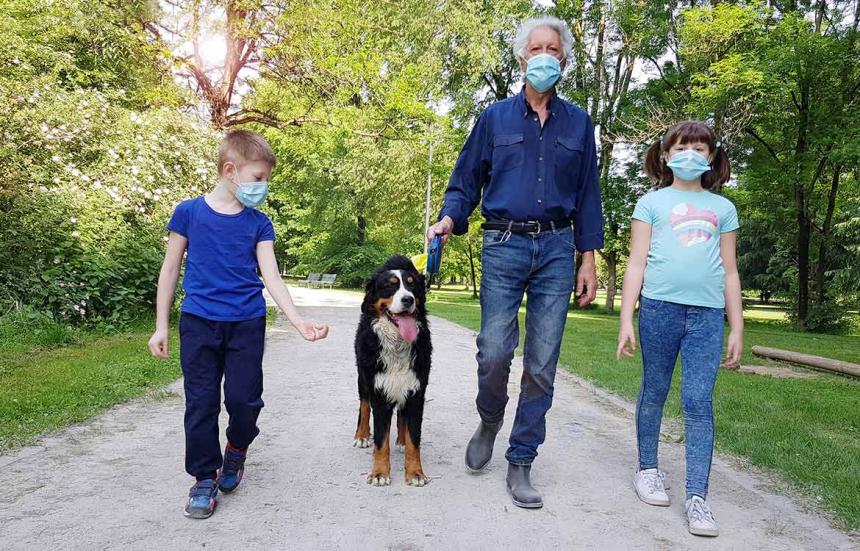Why You Should Wear a Face Mask in Public

Wearing cloth masks in public has become rather controversial for many people. If you wear a mask in grocery stores, you probably believe it reduces transmission of COVID-19. If you skip the mask, you probably believe a simple cloth barrier won’t do much against this pandemic.
And if you’re looking for a trusted expert or a scientific study to support your belief, you’ll find it.
Anti-masker? You may point to the fact that just a few months ago, the Centers for Disease Control and Prevention and World Health Organization both stated masks weren’t necessary for the general public. Pro-masker? You can point out that both these organizations have since changed their tune on masks.
The simple explanation for so much inconsistency is that information on the novel coronavirus is continually evolving. Studies that came out in April were the best available evidence we had at the time. Now we know so much more – unfortunately, as a result of so many more cases around the world.
That’s not the only reason we don’t have solid answers about the role of masks in preventing COVID-19 transmission. Another reason is that mask usage is hard to study, especially during a pandemic. Does the protective benefit come from the barrier itself? Or does wearing a mask simply remind us that a dangerous virus is out there, so we’re more likely to social distance, wash our hands and avoid touching our faces?
In the absence of randomized, controlled studies – the gold standard of scientific research – we have observational studies. We also have plain old observation. You can’t hold up their conclusions as irrefutable. However, they offer promising insight about the value of non-medical masks.
Consider the recent headlines about two hair stylists at a Great Clips salon in Springfield, Mo. One was diagnosed with COVID-19 after exposing 84 clients who sat inches from her face. The other stylist exposed 56 clients to the virus before she was diagnosed. Both stylists wore cloth masks, and all clients wore face masks made from various materials.
The 140 clients exposed to these two hair stylists were offered free COVID-19 testing. Only 46 accepted. None of them tested positive. Two weeks after the second hair stylist tested positive, there still appeared to be no new infections from exposure at this Great Clips salon.
Of course, published studies large and small also point to face masks as useful in coronavirus prevention. A study published in June in the journal The Lancet looked at data from 172 observational studies across 16 countries and six continents. The data suggest that face masks reduce the risk of infection with the novel coronavirus – and also that social distancing helps, too. (Virus transmission decreased with physical distancing of 1 meter (a little over 3 feet) or more, compared with a distance of less than 1 meter. Protection from the virus increased as distance increased.
In a much smaller study – a single case study published in the journal Influenza and Other Respiratory Viruses – a male patient in China with Covid-19 took two bus rides back to back. During the first bus ride, he did not wear a mask. He transmitted the disease to five people.
During the second bus ride, he wore a face mask. No one on that bus was infected. Researchers suggest this case study “indicates the importance of wearing face masks for everyone in a closed space.” That statement is worth consideration not only by health departments, but by all of us concerned with protecting our own health and the health of others.
